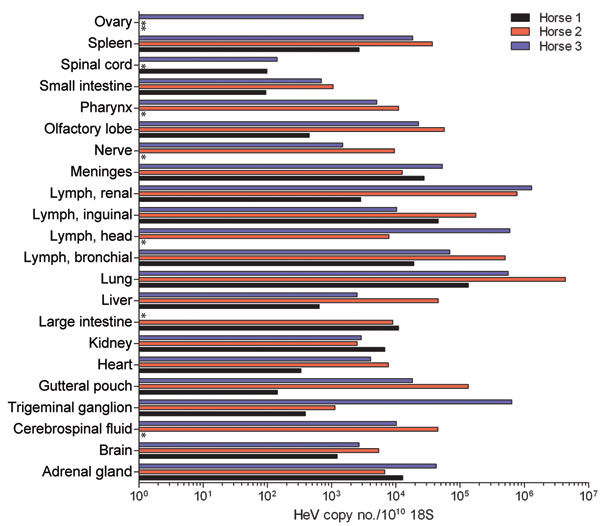Volume 17, Number 12—December 2011
Research
Experimental Infection of Horses with Hendra Virus/Australia/Horse/2008/Redlands
Figure 6

Figure 6. Relative abundance of Hendra virus (HeV) P RNA in different horse tissues at postmortem examination after experimental infection with HeV, Australia. Values are expressed relative to ribosomal 18S copies. Tissue origins are indicated along the y-axis. *Sample not available for testing.
Page created: December 01, 2011
Page updated: December 01, 2011
Page reviewed: December 01, 2011
The conclusions, findings, and opinions expressed by authors contributing to this journal do not necessarily reflect the official position of the U.S. Department of Health and Human Services, the Public Health Service, the Centers for Disease Control and Prevention, or the authors' affiliated institutions. Use of trade names is for identification only and does not imply endorsement by any of the groups named above.